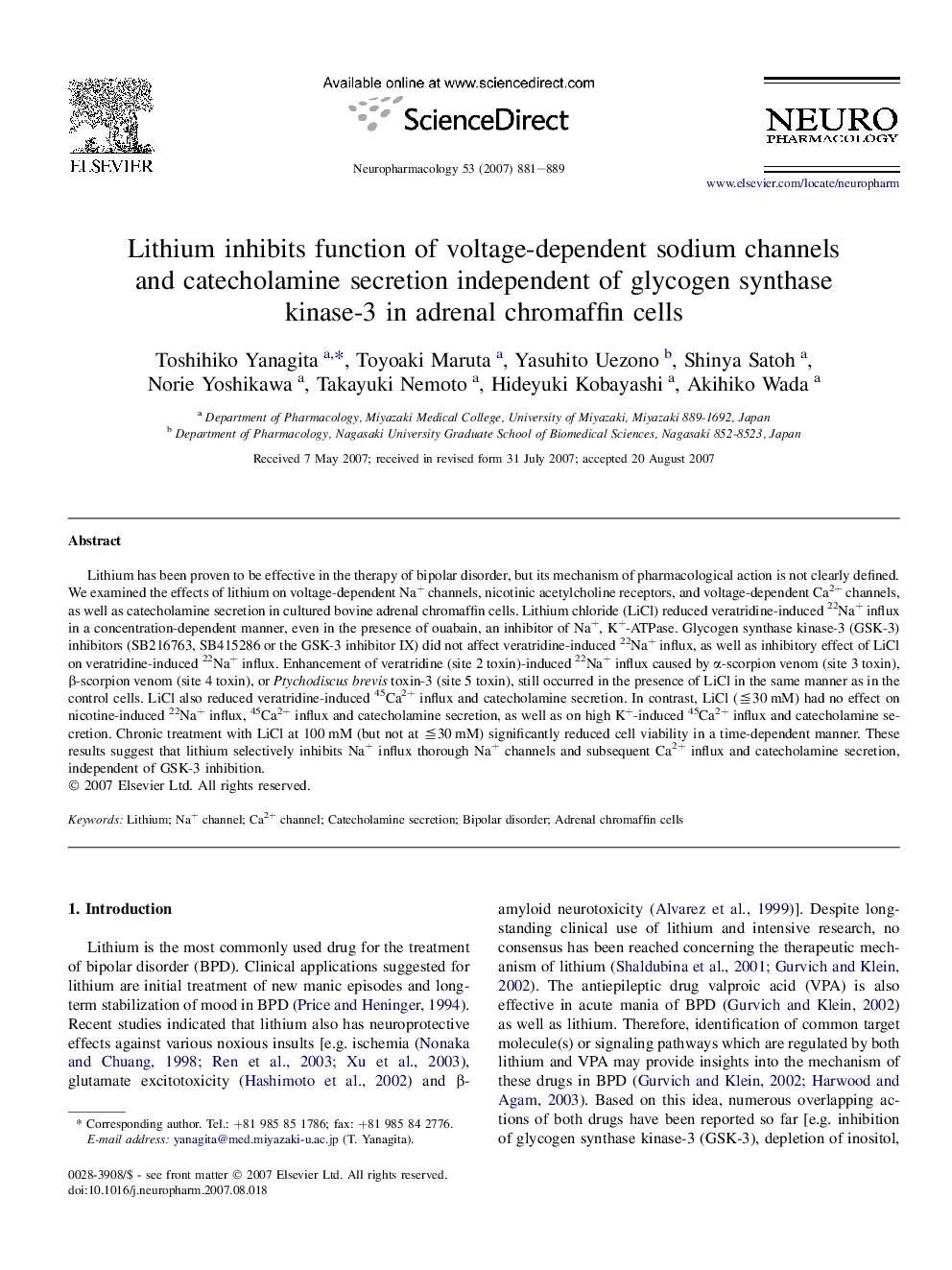| Article ID | Journal | Published Year | Pages | File Type |
|---|---|---|---|---|
| 2495078 | Neuropharmacology | 2007 | 9 Pages |
Lithium has been proven to be effective in the therapy of bipolar disorder, but its mechanism of pharmacological action is not clearly defined. We examined the effects of lithium on voltage-dependent Na+ channels, nicotinic acetylcholine receptors, and voltage-dependent Ca2+ channels, as well as catecholamine secretion in cultured bovine adrenal chromaffin cells. Lithium chloride (LiCl) reduced veratridine-induced 22Na+ influx in a concentration-dependent manner, even in the presence of ouabain, an inhibitor of Na+, K+-ATPase. Glycogen synthase kinase-3 (GSK-3) inhibitors (SB216763, SB415286 or the GSK-3 inhibitor IX) did not affect veratridine-induced 22Na+ influx, as well as inhibitory effect of LiCl on veratridine-induced 22Na+ influx. Enhancement of veratridine (site 2 toxin)-induced 22Na+ influx caused by α-scorpion venom (site 3 toxin), β-scorpion venom (site 4 toxin), or Ptychodiscus brevis toxin-3 (site 5 toxin), still occurred in the presence of LiCl in the same manner as in the control cells. LiCl also reduced veratridine-induced 45Ca2+ influx and catecholamine secretion. In contrast, LiCl (≦30 mM) had no effect on nicotine-induced 22Na+ influx, 45Ca2+ influx and catecholamine secretion, as well as on high K+-induced 45Ca2+ influx and catecholamine secretion. Chronic treatment with LiCl at 100 mM (but not at ≦30 mM) significantly reduced cell viability in a time-dependent manner. These results suggest that lithium selectively inhibits Na+ influx thorough Na+ channels and subsequent Ca2+ influx and catecholamine secretion, independent of GSK-3 inhibition.
